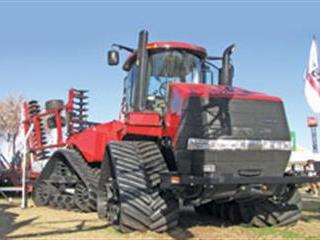The South African sugar industry continues to experience declining financial returns, despite being one of the world’s most efficient sugar producers.
“It’s a sad fact returns are inextricably linked to the production and trade subsidies available to sugar industries in most developed countries,” said South African Sugar Association (SASA) chairperson Martin Mohale. “These encourage and maintain significant levels of production unsustainable under normal conditions. Subsidised global overproduction depresses global sugar prices and discourages production in countries with competitive sugar industries.”
Sugar production in South Africa has fallen by 400 000t since the 2007/08 season. Crushed sugarcane was at 19,3 million tons in 2009 and sugar production declined by 13 000t to 2,26 million tons.
Raw sugar exports for the 2008/09 season came to 821 657t, earning R2,5 billion in foreign exchange. This was down from the 2007/08 export levels of 873 842t, which brought earnings of R1,6 billion. Tough trading conditions have forced more than 4 000, or 10%, of small-scale sugarcane farmers out of the sector.
Mohale said South Africa was the only developing country in the Southern African Development Community (SADC) that didn’t benefit from preferential market access to EU markets.
“Further, within the common market of the Southern African Customs Union (SACU), we have to compete with Swazi producers, who from October 2009 will benefit from unlimited duty-free access to EU markets,” continued Mohale. “For the local industry it’s imperative equitable market access opportunities are established for a strong, regionally integrated sugar sector in the SACU and SADC.”
According to Tshediso Matona, director general of the Department of Trade and Industry, the SASA had petitioned the International Trade Administration Commission of South Africa (ITAC) at the beginning of last year to increase protection against low-priced imports.
He said the application was being finalised by the ITAC. The Department of Agriculture had also reached agreement regarding the development of a tariff policy framework, to address agricultural products within the current World Trade Organisation (WTO) trading environment.
“We’re reviewing tariffs so they don’t act as a factor in the high cost of imports,” he said. “Where they don’t serve a purpose we will remove them. Where they do, for example protecting jobs, we will keep them.”
Matona said the DTI’s objective was getting the WTO to treat the interests of developing nations more meaningfully. “The problem is there is no symmetry,” he added. “The price they’re asking for minimal concessions in agriculture is quite high. We think the big countries need to demonstrate leadership or we can all forget about a successful negotiation.” – Robyn Joubert
Sugar sector shrinks but tariffs to be corrected
The South African sugar industry continues to experience declining financial returns, despite being one of the world’s most efficient sugar producers.
| Read more |
|









